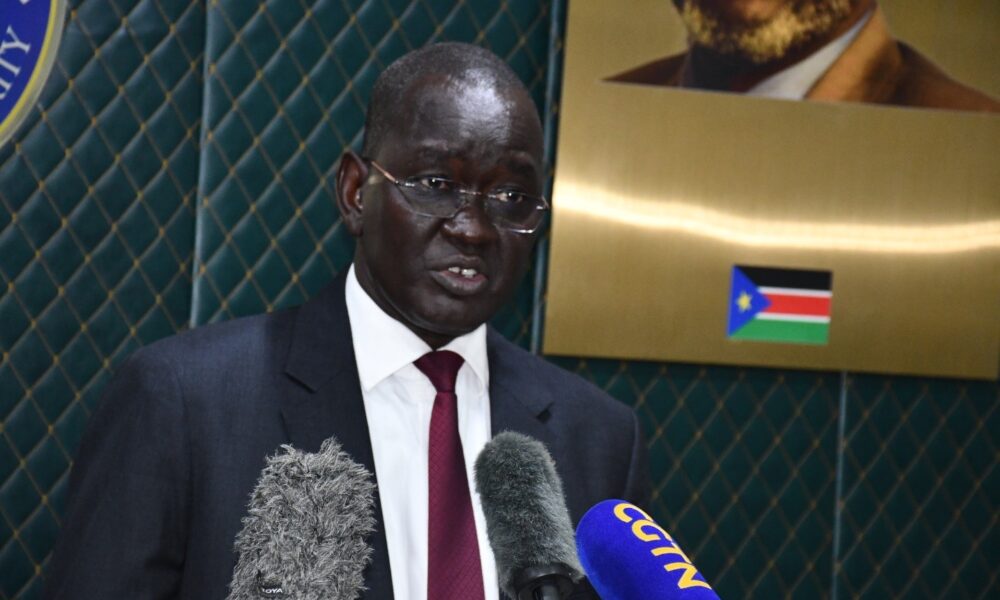By Philip Buda Ladu
Council of Ministers, in its regular meeting on Friday passed 4.2 trillion South Sudanese pounds (SSP) revised fiscal budget for 2024-2025 financial year.
The budget now awaits tabling to the national parliament.
On July 5, 2024, the cabinet, rejected the 2.4 trillion fiscal year budget estimates tabled by the former Minister of Finance and Planning, Engineer Awow Daniel Chuang, citing a lack of priority inputs.
The main priorities outlined in the previous budget proposal were accelerating economic recovery through investments in agriculture-related projects by allocating 10 percent to the agriculture sector and supporting farmers.
However, the Council of Ministers advised the finance minister to return the budget and incorporate additional priorities.
On Friday, August 2, 2024, the minister of finance, Marial Dongrin Ater, presented to the cabinet a reviewed version of the FY budget proposal.
Jacob Maiju Korok is the deputy National Minister of Information and acting government spokesperson.
He told journalists in his media briefing shortly after Friday’s cabinet meeting that Dr. Marial Dongrin Ater, the minister of finance and planning, presented the 2024–2025 revised resource envelope and expenditure.
Maiju stated that the theme of this year’s fiscal budget 2024/25 is to “accelerate economic recovery through improving livelihoods, sustaining peace, and investment in critical social services and agriculture.”
“The budget was revised to address costs related to peace implementation, salary arrears (for foreign missions, civil servants, and organized forces salaries), and state and administrative area transfers,” he told journalists on Friday.
He further added that the budget is also meant to address election-related expenditures, critical investment in agriculture and mining, and social services.
“The budget estimate is 4.2 trillion South Sudanese Pounds (SSP),” he continued. “The fiscal budget deficit is 1.9 trillion SSP, which is 45% of the proposed expenditure.”
The acting government spokesman explained how the government intends to reduce the FY budget discrepancy amidst the economic crisis that has hit hard the young East African nation following the 70% drop of its oil export which accounts for over 90% of the government revenues.
“To reduce this deficit, the government will undertake the following financial options: the resumption of Dar blend exports, exchange rate realignment, grants, and borrowings,” he highlighted.
Furthermore, expenditure rationalization, cuts to capital expenditures, and cuts to foreign travels are some of the austerity measures that the government said it plan to take to cover the financial deficit.
“So the budget was discussed thoroughly and passed with amendments,” Maiju added.
With the approval of the council of ministers, the minister of finance is now all set to table the long-overdue revised 2024–25 fiscal year budget to the transitional national legislative assembly for lawmakers’ scrutiny and approval.
After it’s passed by the parliament, the national fiscal budget would then proceed to the president for assent to become an operational document guiding the government’s transactions and expenditures.
On June 30, 2024, the Ministry of Finance suspended payments to government spending agencies as the fiscal year 2023-2024 closes.
This would have been preceded by the new fiscal budget for 2024-25 which should have come into effect on 1 July, 2024 according to law.
However, about 9 months’ salary arrears for civil servants and organized forces salaries were not paid.




